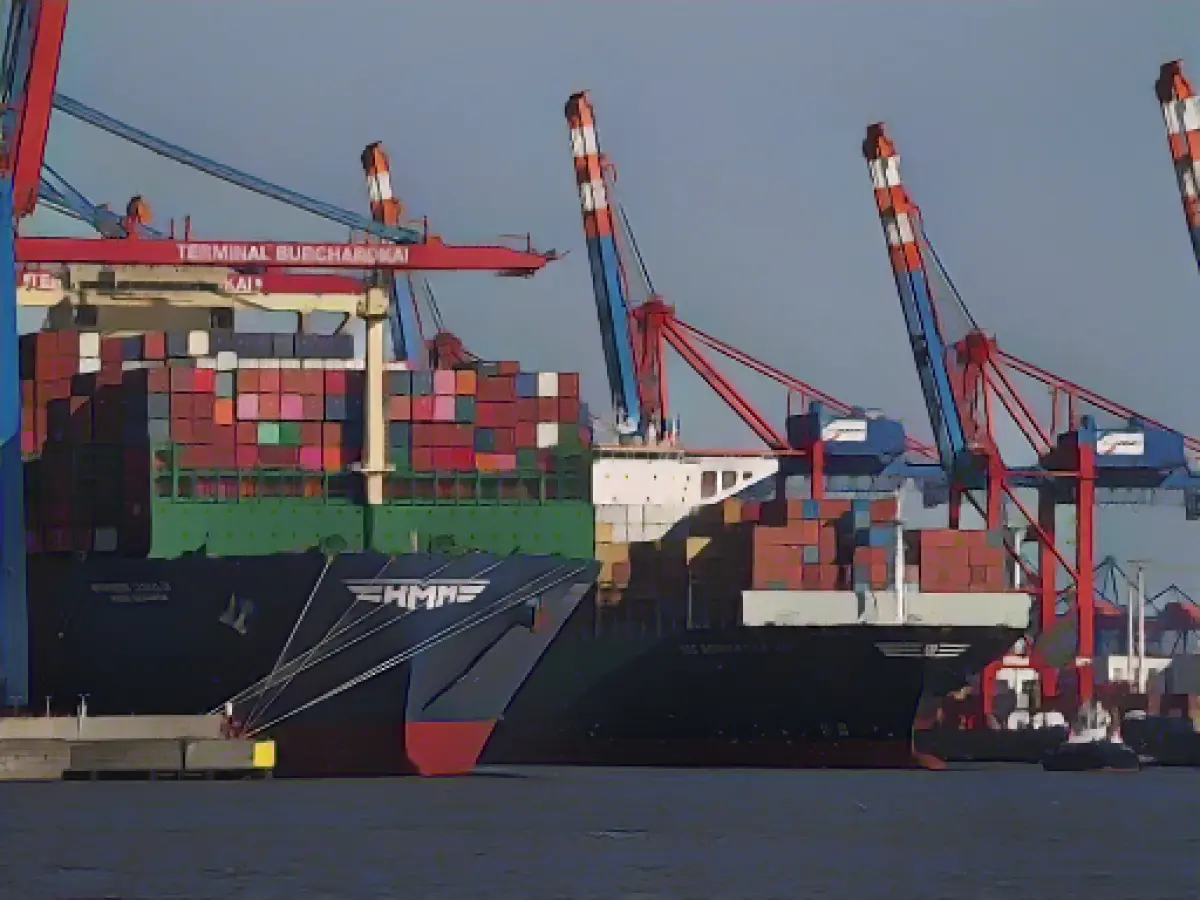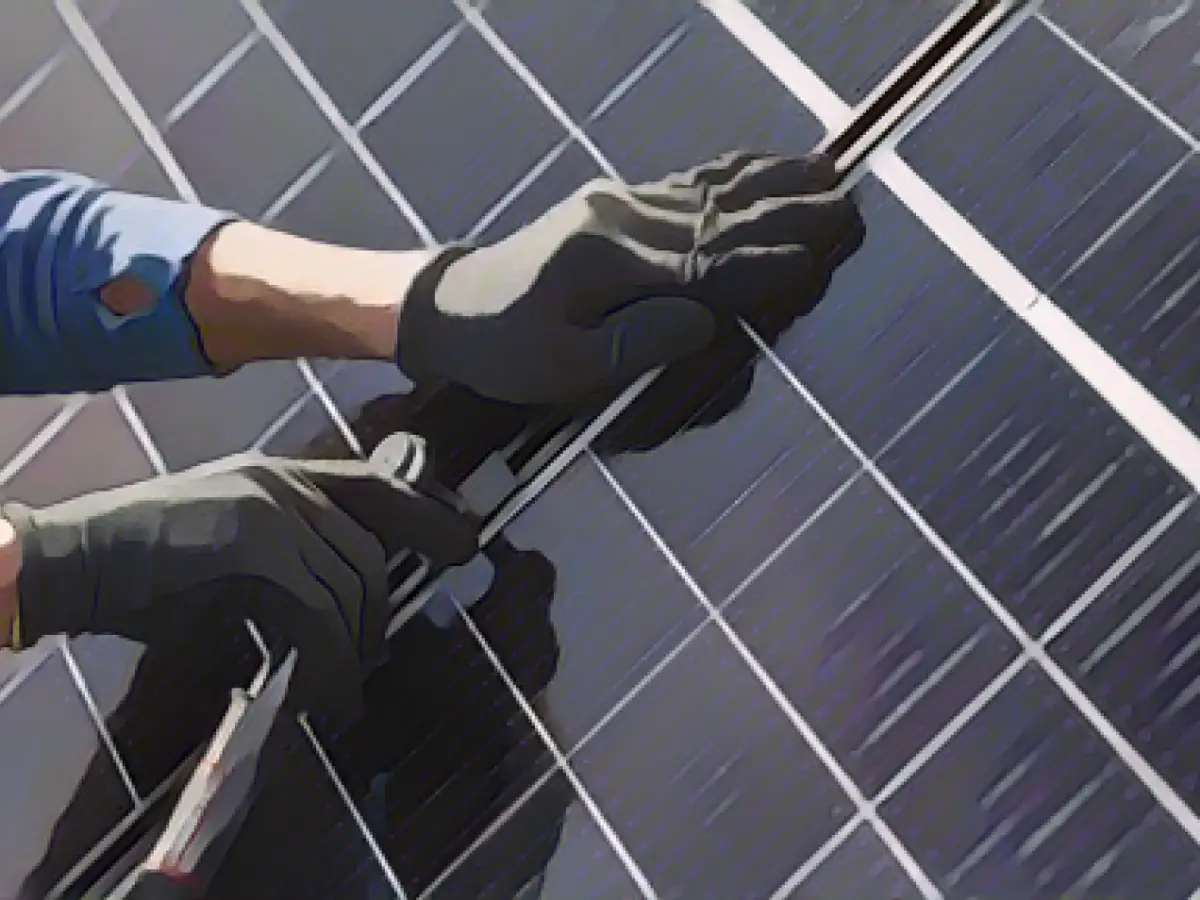Easing EU Cooperation for Stronger Supply Chain Resilience
In an effort to reduce reliance on vital goods, advisors to Germany's Federal Economics Minister, Robert Habeck (Greens), advocate for beefed-up European coordination. The experts from the Ministry's scientific advisory board believe that Germany, with its powerful industrial sector and open economy, is particularly exposed to uncertainties in international supply chains. Despite showing no significant reliance on individual importing countries in trade statistics, critical raw materials could present different challenges.
For instance, in 2019, prior to the COVID-19 pandemic, only two countries supplied uranium ore, including Russia. Similarly, essential pharmaceutical substances depended on three countries, as did high-specialized goods like telecommunications satellites, refrigerated ships, and dredgers. China, however, is leading the way in solidifying supplier connections ahead of the EU and the USA.
Risks posed by underestimating supply chain vulnerabilities could mean significant losses — about €13 billion for electronic goods from Asian manufacturers like Taiwan, China, Japan, and Korea, and high losses for IT services if access to American imports ceased. Germany currently grapples with €20 billion losses from reduced Russian energy product imports, including gas and oil.
Integrated and thoughtful action
The specialists caution against hasty political decisions to tackle such risks, stating that they could be counterproductive. Increasing supply is a time-intensive process that often yields results when shortages decline. However, rash measures focused on immediate needs might overlook future shortages, making it difficult to accurately identify strategically important goods. Constructing "lists of critical goods, technologies, or sectors" to be backed by the state may be futile.
Instead, the experts value EU free trade agreements – especially agreements on critical minerals – as powerful instruments. They propose utilising these agreements to secure essential goods, instead of prioritising market expansion. Furthermore, criteria such as securing raw material supply gains importance in facilitating foreign investments by European corporations, like those facilitated by Germany through Hermes guarantees. Robust frameworks for recycling should also be implemented.
In addition, the EU could unlock new avenues for public sector procurement commitments and establish capacity markets under certain circumstances, enabling suppliers to ensure future deliveries at fixed prices.
A European office for resilient supply chains
The German economy has close ties to other European nations, and trade policies are heavily influenced by Brussels. Thus, the scientists recommend establishing a European office for supply chain resilience, which would monitor potential obstacles in international trade relations and suggest responses to policymakers. This office could also oversee the coordination of joint strategic reserves for critical raw materials.
Ensuring security of supply in European supply chains requires cooperation, diversification of imports, and the strengthening of recycling policies. By implementing strategies that enhance collaboration and adapt supply chains, the EU can foster a more resilient and sustainable industrial sector.
Enrichment Insights:
To improve collaboration among EU countries and minimize the vulnerabilities of critical raw materials within their supply chains, the following strategies can be implemented:
- Streamlined Funding Mechanisms MODEL
- Enhance funding lines to support domestic extraction, processing, and recycling of critical raw materials while coordinating national and regional initiatives to meet the targets set by the CRMA by 2030.
- Resource Diplomacy and Partnerships
- Engage in resource diplomacy with African countries to secure stable and sustainable supplies of critical raw materials while maintaining strict environmental, social, and governance (ESG) standards.
- Secondary Material Partnerships
- Establish secondary material partnerships by developing recycling technologies and infrastructure to meet the recycling targets set by the CRMA to reduce reliance on primary imports.
- Diversification of Imports
- Aim to diversify imports of critical raw materials by working with third countries under the Mineral Security Partnership (MSP) program, which promotes the production, processing, and recycling of critical minerals in a sustainable manner.
- Enhancing Circular Economy Practices
- Strengthen circular economy practices by improving recycling efforts at intermediary stages and reducing waste in the supply chain.
- Support for Research and Innovation
- Invest in research and innovation focused on resource efficiency and the development of substitutes for critical raw materials, helping to reduce demand and provide alternative sources.
- Preparing for Geopolitical Risks
- Monitor and prepare for potential disruptions in the supply chain by maintaining contingency plans to reroute supplies when necessary.
Implementation of these strategies can result in improved collaboration, reduced dependency on critical raw materials, and more resilient European industrial sectors, especially in countries like Germany with robust industrial cores and high openness.








